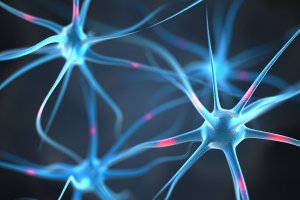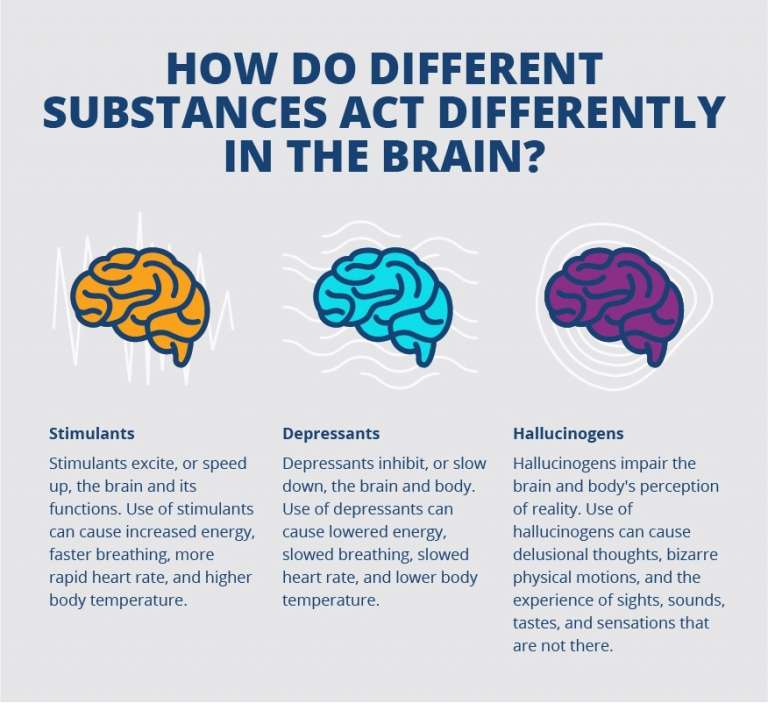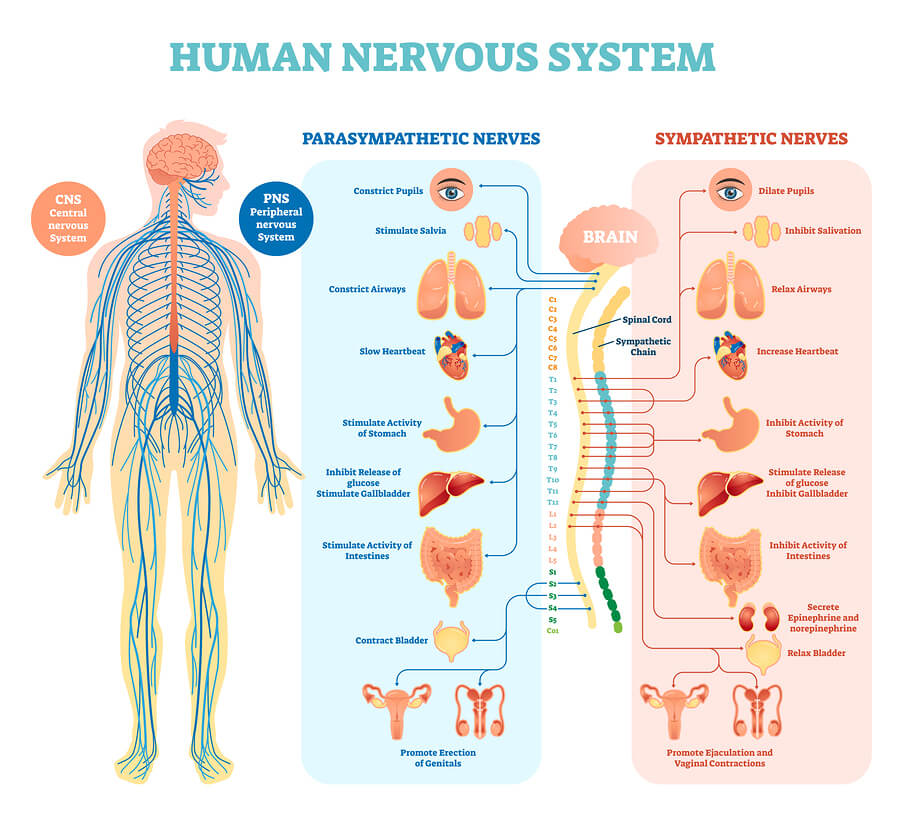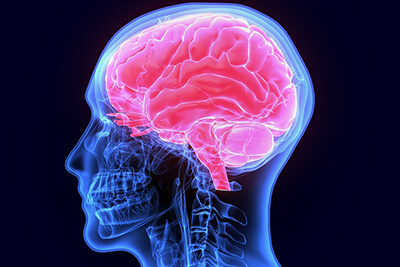Describe how drugs can affect your emotions. For example cocaine attaches to the reuptake receptor blocking it so that dopamine cannot be re-absorbed back into the neuron.

How Drugs Affect The Brain Central Nervous System
Various drugs produce different effects on the brain but their major impact is revealed in violating the way neurons pass signals with the help of neurotransmitters.

. Certain drugs including marijuana and such heavy substances as heroin can activate the neurons because their structure resembles the structure of neurotransmitters. With prolonged use the drugs can actually change the way the brain works as well as change the synapses and shapes of brain cells. It alters how you feel.
Imitating the brains natural chemical messengers. Review the brain itself and. In a normal brain dopamine is re-absorbed back into the neurons.
How Do Drugs Work in the Brain. Nicotine like heroin and cocaine also causes dopamine release in the pleasure or motivation areas of the brain. Many scientific studies conducted over decades have established that drug dependence and addiction are features of an organic brain disorder caused by drugs cumulative impacts on.
Drugs of abuse and activity addictions lead to changes in this normal balance. This stimulation leads to an instant release of glucose and an increase in heart rate breathing activity and blood pressure. When the brain has difficulty maintaining homeostatic balance the wonderfully adaptive brain makes adjustments.
Psychedelics work by interacting with serotonin receptors in the brain and produce a state of. In fact these drugs can fool our receptors lock onto them and activate. This allows the drugs to attach onto and activate the neurons.
A drug can be defined as any substance able to produce a change to our body. Misuse or long-term use of drugs can profoundly impact the way your brain functions. Your body enjoys using the drug so it doesnt want to stop.
Different brain circuits play. Overstimulating the reward circuit of the brain. However drugs of abuse can interrupt the balance between many neurotransmitters needed for normal brain.
For Teachers for Schools for Working Scholars. Some drugs like marijuana and heroin have chemical structures that mimic a neurotransmitter that naturally occurs in our bodies. Drugs affect all parts of the brain the prefrontal cortex the amygdala triggered by withdrawals the limbic system and more.
Drugs can activate the brains reward center basal ganglia giving pleasurable feelings that people naturally get from sex or eating tasty food. Drugs interfere with the way neurons send receive and process signals via neurotransmitters. Use of cocaine like other drugs of abuse induces long-term changes in the brain.
When someone consumes drugs or alcohol it interferes with the way the brains neurons process signals. The brain stem controls life-sustaining functions including sleeping breathing and heart rate while the limbic system. Drugs can alter the way people think feel and behave by disrupting neurotransmission the process of communication between neurons nerve cells in the brain.
Chronic over-stimulation of the brain like that which occurs in addiction interferes with the maintenance of this balance homeostasis. Psychedelics dissociatives and deliriants. Such drugs as nicotine alcohol and heroin cause release of more dopamine in synapse part of the brain by motivating more action potentials within Ventral Tegmental Area.
We know there are at least two ways drugs work in the brain. They block neurotransmittersThey change the amount of a neurotransmitter in synapse. 9 10 Animals chronically exposed to cocaine demonstrate profound changes in glutamate neurotransmissionincluding how much is released and the.
These changes change the way. Drugs able to produce a known effect on the nervous system are referred to as psychoactive drugs for their ability to influence cognitive and behavioral abilities regulated by the brains interconnected network of neurons and to overcome the bloodbrain barrier BBB. All addictive drugs affect brain pathways involving rewardthat is the dopamine system in the reward pathway.
However addictive drugs affect the brain much more intensely than natural rewards such as eating bonding and sex. However drugs over activate the basal ganglia and create intense euphoric feelings. Regions of the brain are disrupted by drug abuse as the National Institute on Drug Abuse NIDA reports that the brain stem limbic system and cerebral cortex are all affected.
Opiates or opioids are drugs used to treat pain as they are depressants. Hallucinogens Hallucinnogenic drugs alter the users perceptions of reality and may affect the brain. Amphetamines work differently although they still affect dopamine reward pathways.
Some drugs such as marijuana and heroin can activate neurons because their chemical structure mimics that of a natural neurotransmitter in the body. Di Chiara and Imperato 1988 suggested that drugs of abuse could. Describe how drugs can change the way the brain works.
As a result drugs affect communication between neurons by influencing the level of dopamine Hanson Venturelli Fleckenstein 2006. Hallucinogens are drugs that alter sensory input to the brain. Drugs have actually been found to change how the brain functions by altering the organization of pathways in the brain that support memory attention ability to learn problem solving and emotions.
The central nervous system consists of. Drugs can affect your emotions by correcting the levels of serotonin in synapses and by changing the levels or effectiveness of other neurotransmitters helping to reduce depression. Most often people are caught in its snare because all drugs of abuse stimulate the same reward circuit.
Describe how drugs can effect your emotions. Our brain is made up of billions of cells or neurons which are organized into circuits and networks. By activating the brains reward circuitry drugs deliver a.
They drastically affect our neurotransmitters causing irregular messages to be sent throughout our nervous system. Some drugs can change the way neurons communicate with each other. Sate reasons why additiction can be difficult to overcomme.
We sense we feel we respond. They act like neurotransmitters. No one takes a drug intending to develop an addiction.
Amphetamines block this process. Animal studies show that cocaine exposure can cause significant neuroadaptations in neurons that release the excitatory neurotransmitter glutamate. Within seconds to minutes of entering the body drugs cause dramatic changes to synapses in the brain.
Drugs that can impact norepinephrine levels. This process is called RE-UPTAKE. They are divided into three categories.
Drugs affect the brain in various ways by inflicting chemical reactions on receptors causing various experiences. Drugs can do this because once ingested they alter the brains chemistry in order to slow down or speed up the central nervous system.

Effects Of Drugs Alcohol On The Nervous System


0 Comments